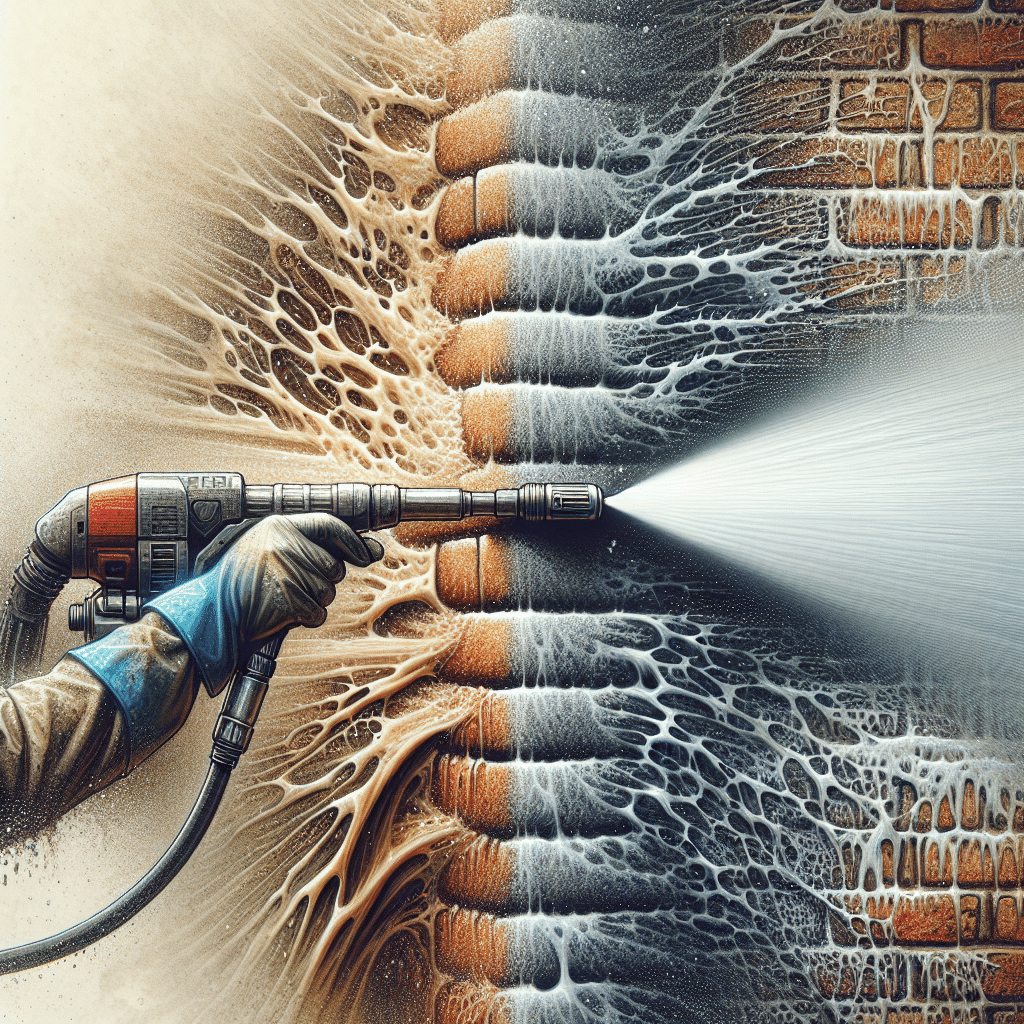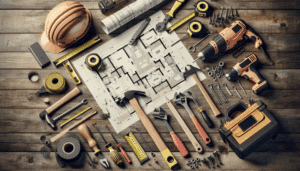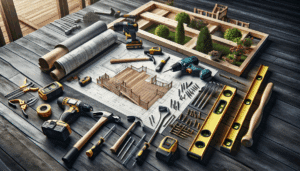Welcome to Savannah Handyman, where we bring sparkle back to your homes with our top-notch services! Tired of grimy driveways and moss-covered patios? Pressure washing might just be the answer to your cleaning woes. In this post, we’ll guide homeowners like you through the basics of pressure washing, ensuring your home in Savannah, GA looks its best.
Contents
- 1 What is Pressure Washing?
- 2 The Benefits of Pressure Washing
- 3 Essential Equipment Needed
- 4 Understanding Pressure Washer Types
- 5 Handyman Techniques for Effective Cleaning
- 6 Common Mistakes to Avoid
- 7 Safety Precautions to Keep in Mind
- 8 Perfect Timing for Pressure Washing
- 9 Pressure Washing Specific Areas
- 10 Conclusion
What is Pressure Washing?
Pressure washing is an effective cleaning technique that uses high-pressure water spray to remove dirt, mold, grime, and other unsightly layers from surfaces. Whether it’s your deck, driveway, or siding, pressure washing can restore the original look of various surfaces with surprising efficiency.
And guess what? It’s not just for professionals! With the right knowledge and equipment, you can tackle many projects yourself. That’s where our handy guide comes in. Let’s explore how you can transform your home’s exterior with just water pressure and a little know-how.
The Benefits of Pressure Washing
Why should you consider pressure washing for your home? First and foremost, it enhances curb appeal. A clean exterior speaks volumes about your living space, making it more inviting to guests and potential buyers.
But it’s not all about looks. Regular pressure washing also prevents **damage** caused by grime, mold, and algae, which can erode surfaces over time. Plus, it saves you money by avoiding expensive repairs down the road. Now, who wouldn’t want to save a few bucks?
Essential Equipment Needed
Before diving into a pressure washing project, it’s crucial to gather the right tools. Any good project begins with preparation, and a successful pressure washing experience is no different. Here’s a basic list to get you started.
Begin by choosing a reliable pressure washer that suits your household needs. You’ll also need nozzles, safety equipment like gloves and goggles, and cleaning detergents in case water alone doesn’t do the job. Stock up on these essentials, and you’re half-way there!
Understanding Pressure Washer Types
Not all pressure washers are created equal. Understanding the different types can make or break your project. Primarily, you’ll find gas-powered and electric models on the market. Gas-powered washers usually deliver more pressure, making them ideal for heavy-duty tasks.
On the other hand, electric models are quieter and more manageable, perfect for small to medium-sized jobs. Consider your specific needs and the tasks at hand when selecting a pressure washer. Your home’s surfaces will thank you for choosing wisely!
Handyman Techniques for Effective Cleaning
Want to master pressure washing like a pro? We’ve got some insider tips just for you. The secret to spotless cleaning often lies in the technique. Always maintain a steady distance from the surface being cleaned—usually about 12 to 18 inches.
Start from the top and work your way down, keeping the nozzle moving to avoid streaks or damage. Never apply maximum pressure immediately; it’s best to gradually increase pressure to tackle stubborn dirt effectively.
Common Mistakes to Avoid
Even the best of us make mistakes, but with our guidance, you’ll sidestep common pitfalls. Avoid using hot water in a cold-water machine as it can damage internal components. Also, don’t let the washer idle for too long as it can lead to overheating.
Moreover, always test your pressure settings on an inconspicuous area first. This simple step can prevent unintentional damage to sensitive surfaces. Remember, practice makes perfect—and we’re here to make sure you get it right!
Safety Precautions to Keep in Mind
While pressure washing might seem straightforward, safety shouldn’t be overlooked. Remember to wear appropriate safety gear such as goggles, gloves, and non-slip footwear. It’s also advisable to use ear protection with louder models.
Always be aware of your surroundings and avoid pointing the washer at people or pets. With great pressure comes great responsibility, so handle your equipment like the powerhouse it truly is.
Perfect Timing for Pressure Washing
Is there a best time to pressure wash? Indeed, there is! Spring and early summer are optimal seasons for pressure washing, as they prepare your home for summer gatherings and ensure you’re not working in frigid conditions.
Avoid rainy days since the water spray needs a dry surface to best remove grime and debris. Choosing the right season and weather can make your task more pleasant and productive.
Pressure Washing Specific Areas
- Driveways: Driveways suffer the wrath of oil stains and tire marks. A pressure washer can clear these within minutes, refreshing your home’s front appeal.
- Decks and Patios: Wooden and concrete outdoor areas accumulate mildew over time. Gentle pressure settings can restore their natural beauty without causing damage.
- Siding: Your home’s walls bear the brunt of all weather conditions. Regular washing prevents accumulation of mold and algae, preserving your paint job.
- Fences: Whether wooden or vinyl, fences are prone to discoloration. Pressure washing keeps them as pristine as when they were installed.
- Patio Furniture: Extend the life of your outdoor furniture by blasting away dirt and pollen buildup, making them ready for summer fun.
Conclusion
Congratulations, you’re now equipped with the knowledge to tackle your very own pressure washing project. Ready to bring that pristine clean to your home’s exterior? We can help make it happen! Contact Savannah Handyman today by phone # 912-600-3283 or Request a Free Quote.




